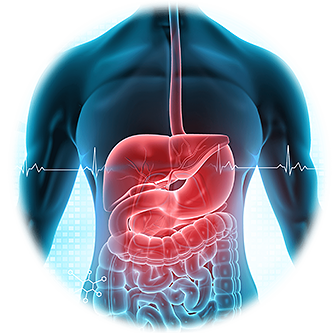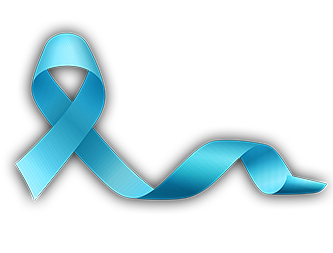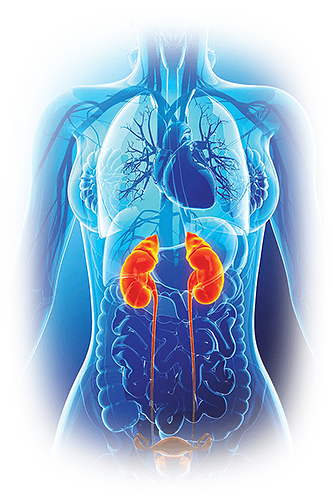Login
For Clinician Providers
For Clinician Providers
For Patients
Celiac Disease Screening
Normally, your immune system attacks things like viruses and bacteria. If you have celiac disease, eating gluten makes your immune system attack the lining of the small intestine, as if it were a harmful substance. This can damage your digestive system and may prevent you from getting the nutrients you need.
Other names: celiac disease antibody test, anti-tissue transglutaminase antibody (anti-tTG), deaminated gliadin peptide antibodies, anti-endomysial antibodies
What is it used for?
A celiac disease test is used to:
- Diagnose celiac disease
- Monitor celiac disease
- See if a gluten-free diet is relieving symptoms of celiac disease
Why do I need a celiac disease test?
You may need a celiac disease test if you have symptoms of celiac disease. Symptoms are different for children and adults.
Symptoms of celiac disease in children include:
- Nausea and vomiting
- Abdominal bloating
- Constipation
- Chronic diarrhea and foul-smelling stool
- Weight loss and/or failure to gain weight
- Delayed puberty
- Irritable behavior
Symptoms of celiac disease in adults include digestive problems such as:
- Nausea and vomiting
- Chronic diarrhea
- Unexplained weight loss
- Decreased appetite
- Abdominal pain
- Bloating and gas
Many adults with celiac disease have symptoms that are not related to digestion. These include:
- Iron-deficient anemia
- An itchy rash called dermatitis herpetiformis
- Mouth sores
- Bone loss
- Depression or anxiety
- Fatigue
- Headaches
- Missed menstrual periods
- Tingling in the hands and/or feet
If you don’t have symptoms, you may need a celiac test if you are at higher risk of having the disease. You are more likely to have celiac disease if a close family member has celiac disease. You may also be at higher risk if you have another autoimmune disorder, such as type 1 diabetes.
What happens during a celiac disease test?
A health care professional will take a blood sample from a vein in your arm, using a small needle. After the needle is inserted, a small amount of blood will be collected into a test tube or vial. You may feel a little sting when the needle goes in or out. This usually takes less than five minutes.
Will I need to do anything to prepare for the test?
If the test is being used to diagnose celiac disease, you’ll need to continue to eat foods with gluten for a few weeks before testing. Your health care provider will give you specific instructions about how to prepare for the test.
If the test is being used to monitor celiac disease, you don’t need any special preparations.
Are there any risks to the test?
There is very little risk to having a blood test. You may have slight pain or bruising at the spot where the needle was put in, but most symptoms go away quickly.
What do the results mean?
There are different types of celiac disease antibodies. Your celiac test results may include information on more than one type of antibody. Typical results may show one of the following:
- Negative: You probably don’t have celiac disease.
- Positive: You probably do have celiac disease.
- Uncertain or indeterminate: It’s unclear whether you have celiac disease.
If your results were positive or uncertain, your provider may order a test called an intestinal biopsy to confirm or rule out celiac disease. During an intestinal biopsy, a health care provider will use a special tool called an endoscope to take a small piece of tissue from your small intestine.
Is there anything else I need to know about a celiac disease test?
Most people with celiac disease can reduce and often eliminate symptoms if they keep a strict gluten-free diet. Although many gluten-free products are available today, it can still be challenging to completely avoid gluten. Your health care provider may refer you to a dietician who can help you enjoy a healthy diet without gluten.
References
- MedlinePlus [Internet]. Available from: https://medlineplus.gov/lab-tests/celiac-disease-screening/
- American Gastroenterological Association [Internet]. Bethesda (MD): American Gastroenterological Association; c2018. Understanding Celiac Disease [cited 2018 Apr 27]; [about 3 screens]. Available from: https://www.gastro.org/patient-center/brochure_Celiac.pdf
- Celiac Disease Foundation [Internet]. Woodland Hills (CA): Celiac Disease Foundation; c1998–2018. Celiac Disease Screening and Diagnosis [cited 2018 Apr 27]; [about 3 screens]. Available from: https://celiac.org/celiac-disease/understanding-celiac-disease-2/diagnosing-celiac-disease
- Celiac Disease Foundation [Internet]. Woodland Hills (CA): Celiac Disease Foundation; c1998–2018. Celiac Disease Symptoms [cited 2018 Apr 27]; [about 3 screens]. Available from: https://celiac.org/celiac-disease/understanding-celiac-disease-2/celiacdiseasesymptoms
- Lab Tests Online [Internet]. Washington D.C.: American Association for Clinical Chemistry; c2001–2018. Autoimmune Disorders [updated 2018 Apr 18; cited 2018 Apr 27]; [about 3 screens]. Available from: https://labtestsonline.org/conditions/autoimmune-diseases
- Lab Tests Online [Internet]. Washington D.C.: American Association for Clinical Chemistry; c2001–2018. Celiac Disease Antibody Tests [updated 2018 Apr 26; cited 2018 Apr 27]; [about 2 screens]. Available from: https://labtestsonline.org/tests/celiac-disease-antibody-tests
- Mayo Clinic [Internet]. Mayo Foundation for Medical Education and Research; c1998–2018. Celiac Disease: Diagnosis and Treatment; 2018 Mar 6 [cited 2018 Apr 27]; [about 4 screens]. Available from: https://www.mayoclinic.org/diseases-conditions/celiac-disease/diagnosis-treatment/drc-20352225
- Mayo Clinic [Internet]. Mayo Foundation for Medical Education and Research; c1998–2018. Celiac Disease: Symptoms and Causes; 2018 Mar 6 [cited 2018 Apr 27]; [about 3 screens]. Available from: https://www.mayoclinic.org/diseases-conditions/celiac-disease/symptoms-causes/syc-20352220
- Merck Manual Consumer Version [Internet]. Kenilworth (NJ): Merck & Co. Inc.; c2018. Celiac Disease [cited 2018 Apr 27]; [about 2 screens]. Available from: https://www.merckmanuals.com/home/digestive-disorders/malabsorption/celiac-disease
- National Heart, Lung, and Blood Institute [Internet]. Bethesda (MD): U.S. Department of Health and Human Services; Blood Tests [cited 2018 Apr 27]; [about 3 screens]. Available from: https://www.nhlbi.nih.gov/health-topics/blood-tests
- National Institute of Diabetes and Digestive and Kidney Diseases [Internet]. Bethesda (MD): U.S. Department of Health and Human Services; Definitions and Facts for Celiac Disease; 2016 Jun [cited 2018 Apr 27]; [about 4 screens]. Available from: https://www.niddk.nih.gov/health-information/digestive-diseases/celiac-disease/definition-facts
- National Institute of Diabetes and Digestive and Kidney Diseases [Internet]. Bethesda (MD): U.S. Department of Health and Human Services; Treatment for Celiac Disease; 2016 Jun [cited 2018 Apr 27]; [about 7 screens]. Available from: https://www.niddk.nih.gov/health-information/digestive-diseases/celiac-disease/treatment
- UF Health: University of Florida Health [Internet]. University of Florida; c2018. Celiac disease—sprue: Overview [updated 2018 Apr 27; cited 2018 Apr 27]; [about 2 screens]. Available from: https://ufhealth.org/celiac-disease-sprue
- University of Rochester Medical Center [Internet]. Rochester (NY): University of Rochester Medical Center; c2018. Health Encyclopedia: Anti-tissue Transglutaminase Antibody [cited 2018 Apr 27]; [about 2 screens]. Available from: https://www.urmc.rochester.edu/encyclopedia/content.aspx?contenttypeid=167&contentid;=antitissue_transglutaminase_antibody
- UW Health [Internet]. Madison (WI): University of Wisconsin Hospitals and Clinics Authority; c2018. Celiac Disease Antibodies: How To Prepare [updated 2017 Oct 9; cited 2018 Apr 27]; [about 4 screens]. Available from: https://www.uwhealth.org/health/topic/medicaltest/celiac-disease-antibodies/abq4989.html#abq4992
- UW Health [Internet]. Madison (WI): University of Wisconsin Hospitals and Clinics Authority; c2018. Celiac Disease Antibodies: Results [updated 2017 Oct 9; cited 2018 Apr 27]; [about 8 screens]. Available from: https://www.uwhealth.org/health/topic/medicaltest/celiac-disease-antibodies/abq4989.html#abq4996
- UW Health [Internet]. Madison (WI): University of Wisconsin Hospitals and Clinics Authority; c2018. Celiac Disease Antibodies: Test Overview [updated 2017 Oct 9; cited 2018 Apr 27]; [about 2 screens]. Available from: https://www.uwhealth.org/health/topic/medicaltest/celiac-disease-antibodies/abq4989.html#abq4990
- UW Health [Internet]. Madison (WI): University of Wisconsin Hospitals and Clinics Authority; c2018. Celiac Disease Antibodies: Why It is Done [updated 2017 Oct 9; cited 2018 Apr 27]; [about 3 screens]. Available from: https://www.uwhealth.org/health/topic/medicaltest/celiac-disease-antibodies/abq4989.html#abq4991



